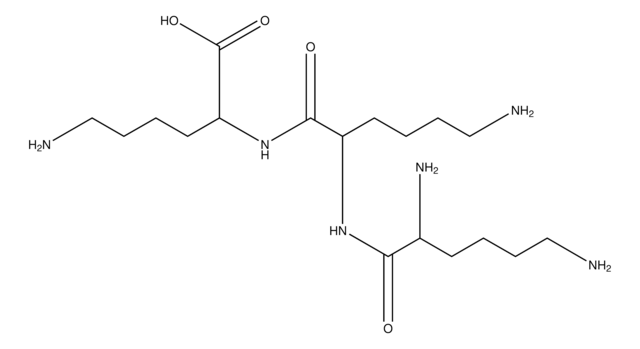06203
Sodium hydroxide
puriss., meets analytical specification of Ph. Eur., BP, NF, E524, 98-100.5%, pellets
Synonym(s):
‘Caustic soda’
About This Item
Recommended Products
vapor density
>1 (vs air)
Quality Level
vapor pressure
<18 mmHg ( 20 °C)
3 mmHg ( 37 °C)
grade
puriss.
Assay
98-100.5%
form
pellets
quality
meets analytical specification of Ph. Eur., BP, NF, E524
impurities
≤0.0005% total nitrogen (N)
≤0.002% heavy metals (as Pb)
≤0.5% Na2CO3
mp
318 °C (lit.)
solubility
water: soluble 1260 g/L at 20 °C
density
2.13 g/cm3 at 20 °C
anion traces
chloride (Cl-): ≤20 mg/kg
phosphate (PO43-): ≤10 mg/kg
silicate (as SiO2): ≤100 mg/kg
sulfate (SO42-): ≤30 mg/kg
cation traces
Al: ≤10 mg/kg
As: ≤2 mg/kg
Ca: ≤10 mg/kg
Fe: ≤10 mg/kg
Hg: ≤1 mg/kg
K: ≤1000 mg/kg
Pb: ≤0.5 mg/kg
SMILES string
[OH-].[Na+]
InChI
1S/Na.H2O/h;1H2/q+1;/p-1
InChI key
HEMHJVSKTPXQMS-UHFFFAOYSA-M
Looking for similar products? Visit Product Comparison Guide
Related Categories
General description
Application
- A reagent in the gold-catalyzed selective oxidation of glycerol to glyceric acid.
- A catalyst for the cross-dehydrogenative coupling of alcohols and hydrosilanes to synthesize silyl ethers.
- A base in the transition-metal free Sonogashira-type couplings of aryl halides and alkynes to synthesize ynones in the presence of PEG as a phase-transfer agent.
Signal Word
Danger
Hazard Statements
Precautionary Statements
Hazard Classifications
Eye Dam. 1 - Met. Corr. 1 - Skin Corr. 1A
Storage Class Code
8A - Combustible, corrosive hazardous materials
WGK
WGK 1
Flash Point(F)
Not applicable
Flash Point(C)
Not applicable
Certificates of Analysis (COA)
Search for Certificates of Analysis (COA) by entering the products Lot/Batch Number. Lot and Batch Numbers can be found on a product’s label following the words ‘Lot’ or ‘Batch’.
Already Own This Product?
Find documentation for the products that you have recently purchased in the Document Library.
Our team of scientists has experience in all areas of research including Life Science, Material Science, Chemical Synthesis, Chromatography, Analytical and many others.
Contact Technical Service


